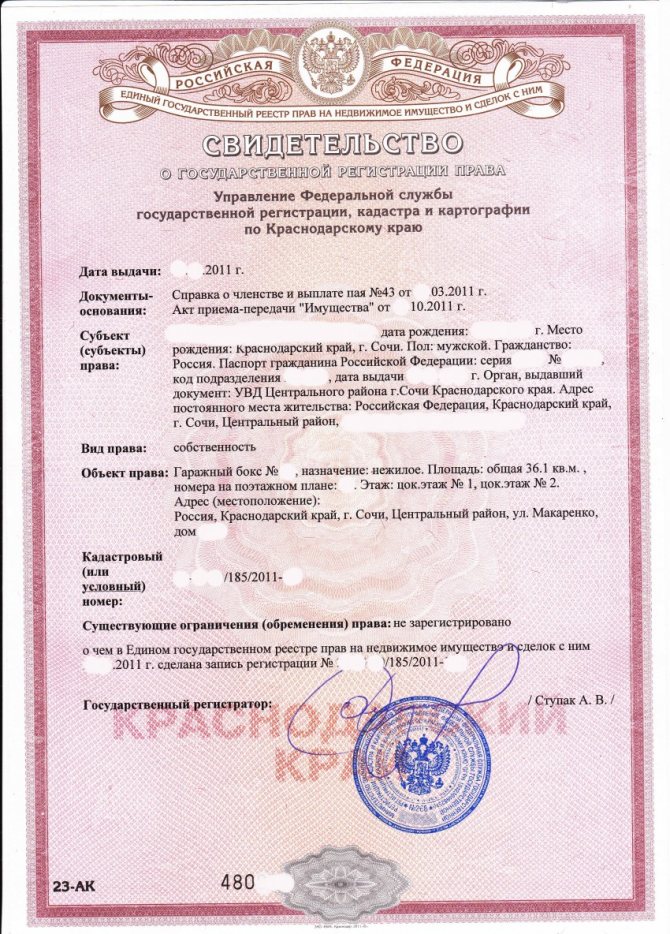Before the emergence of private property in Russia with the release of the Land Code (LC) in 2001, land was considered only state-owned. The land was administered by the state, local municipalities and constituent entities of the Russian Federation that are part of Russia. In fact, land could be taken for indefinite (permanent) use or for temporary use, but in both cases on a free basis.
Later, such a concept as rent appeared, when in order to transfer the rights to use for a certain time on a paid basis, it is necessary to conclude an agreement. To transfer rights to perpetual use (PUP) from the state, a certain person had to obtain permission and formalize this right.
Dear readers! The article talks about typical ways to resolve legal issues, but each case is individual. If you want to find out how to solve your particular problem , contact a consultant:
+7 (499) 938-81-90 (Moscow)
+7 (812) 467-32-77 (Saint Petersburg)
8 (800) 301-79-36 (Regions)
APPLICATIONS AND CALLS ARE ACCEPTED 24/7 and 7 days a week.
It's fast and FREE !
The provisions of the Land Code limited the rights to registered perpetual use for some categories of citizens and obliged them to re-register documents for plots. Land users were offered two options to choose from – rent or ownership. Moreover, the legislator obliged to do this before the beginning of 2012.
For violation of the specified period, the legislator introduced administrative liability in the Code of Administrative Offenses, in Art. 7.34 in the amount of 20-100 thousand rubles. for legal entities and individual entrepreneurs. The law gave relief only to owners of plots with linear objects of state importance located on them.
Article 7.34. Use of a land plot under the right of permanent (perpetual) use
They needed to do this before the beginning of 2015. But in 2014, the deadlines were extended for legal entities with sites on which engineering infrastructure facilities are located. They were allowed to re-register until 2021.
Initially, the requirement to re-register the PBP for land was established in Art. 3 clause 2 of Federal Law No. 137 (10.25.01) on the introduction of the Land Code. The legislator indicated that some categories of legal entities can still transfer land for indefinite use and re-registration of rights is not required from them (LLC, Article 20, paragraph 1 and Federal Law No. 137, Article 3, paragraph 2.4).
These include state and local government bodies, heritage centers of Russian presidents, state-owned enterprises, state institutions and municipal ones. If the land is in perpetual use by SNT or a garage cooperative, a gardening or dacha non-profit association of citizens, then for the re-registration of rights they are not limited by time.
At the same time, ordinary citizens who own plots on the PBP, compared to Soviet times, cannot transfer their plots by inheritance or sell until they register their ownership. Therefore, going through the procedure as quickly as possible is in the interests of the citizens themselves.
Sample extract from USRN
Reference to legislation
Land owners often confuse the rules for re-registration of perpetual use with Article 36 (clause 1) of the Land Code, which states that owners of buildings have the exclusive priority right to buy the property on which they are located or lease them.
The procedures established by the legislator regarding the re-registration of perpetual rights and the purchase of plots by owners of buildings are almost identical. But they have different reasons for exercising their rights.
Persons who have a PBP have a wider range of rights, for example:
- They are allowed to buy plots or lease them regardless of the presence or absence of buildings on them.
- If a building is located on the land, then according to Art. 36 (ZK) its owner can claim the area of land that is located underneath it and is required for the operation of the building. In fact, the owner of the building can only buy part of the site. The owner of land on the PBP can buy the entire plot, even if the buildings on it occupy a small part of the territory.
- Land users may purchase land where unfinished construction projects are located.
- Usually, when transferring rights to a plot, it is considered formed, i.e. it must be registered with the State Cadastre. But even if the plot was not registered at one time, this cannot serve as a reason for the final refusal to re-register rights from perpetual use to rent or ownership.
- In some cases, even re-registration of a site is allowed if an unregistered construction project is located on it, i.e. a self-built building. Although, according to the law, it is necessary to first register property rights for a building, and then the legal owner can lay claim to the land itself.
It is not clear to landowners, and to a greater extent to commercial enterprises and ordinary citizens, whether it is possible, if the deadline before the beginning of 2012 has been missed, to still register ownership of a plot or enter into a lease agreement, provided that they previously owned it on a PBP? For example, this needs to be done in 2021. The legislation does not provide a direct answer to this question.
The landowner is obliged to re-register his rights before the beginning of 2012, but this does not mean that he loses this opportunity in the future. After all, the PBP that he received earlier remains with him.
If the re-registration did not occur within the prescribed period, then according to the Land Code, Art. 45 PBP cannot be lost. In fact, this means that it will be possible to re-register the PBP in the future, but only after paying penalties.
Main preparation conditions
Certain categories of citizens may apply for re-registration of the PBP, unless, of course, restrictions are established on the land. The procedure is considered lengthy and requires the preparation of documents. It ends with the issuance of a state registration certificate for the land in one case or the registration of a lease agreement in another.
Who and how can demand
Every legal entity and citizen must re-register permanent perpetual use of a land plot that was previously transferred from state or municipal ownership, unless it is included in the category of persons specified in the Land Code, Art. 20, paragraph 1.
Article 20. Permanent (unlimited) use of land plots
In fact, everyone should re-register the PBP, except those who are still allowed by the state to use the PBP. The only difference between legal entities and individuals is that the former have deadlines for re-registration, while the latter do not.
In some cases, the presence of a building on the site that is owned by the land user may cause privatization on a free basis.
So, if:
- There is a building on the plot, then its owner and land user in one person can exercise their right to privatization and become the full owner of the plot. But if the building has several owners, then the plot will need to be registered as shared ownership, taking into account the share of ownership of each of them in the building.
- There are no buildings on the ground. In fact, the land user purchases land and documents the rights to the property.
- The land is in perpetual use by one organization, and the building located on it is acquired by another. From the moment of its purchase, the owner of the building acquires the exclusive right to purchase part of the land located under the construction site. But until that moment, he will use the land on the PBP by succession. At the same time, he cannot maintain the PBP and will need to re-register it. If the building becomes the property of several persons, then taking into account the share of each person, the procedure for using the allotment is carried out.
- The land is an agricultural plot and is owned by an agricultural enterprise or a citizen (farmer) who is engaged in the relevant activity. When purchasing land, it is enough to pay 10% of its cadastral value. If a religious organization at one time received the right to perpetual use, then according to the Land Code, Art. 28 it is required to transfer ownership of the land to her free of charge.
Article 28. Acquisition of rights to land plots that are in state or municipal ownership
Sample cadastral passport for a land plot:
You can find out the cadastral value of a land plot for free online on specialized websites. The validity period of a cadastral passport for a land plot is indicated here.
Required papers
In order to re-register their rights, legal entities and citizens apply to the local government body that has jurisdiction over this site. The list of documents that must be submitted is established by the Ministry of Economic Development of the Russian Federation. Moreover, the state authority or local administration does not have the right to demand from the land user other papers other than those specified in the Land Code, Art. 36, paragraph 5.
So the person must submit along with the application:
- identity document for citizens (copy of passport), certificate of state registration for enterprises (copy);
- power of attorney, if a representative will act on behalf of the applicant (copy and original);
- an extract from the Unified State Register of Real Estate or another document that can certify ownership of the building;
- an extract from the Unified State Register or other documents certifying the PBP site assigned to the applicant; if this right was not registered at the time, then the territorial office of Rosreestr must give an appropriate written response;
- cadastral passport for land;
- a document confirming that the applicant received the PBP for the site (copy).
The cadastral passport is one of the important documents. If the site was not registered at the time, the applicant will first have to contact the municipality or government agency to provide a diagram of its location on the ground or a cadastral map (ZK, art. 36, clause 7). After submitting an application, the land user is usually issued a card within a month. After receiving it, the land user must register the plot with the State Cadastre and receive a cadastral passport for it.
This means that you will first have to survey the area. The procedure is paid, it includes clarifying the boundaries of the plot, its area, establishing turning points, etc. All individual characteristics regarding the plot will be displayed in the cadastral passport, which will subsequently form an integral part of the state registration certificate for the land.
The second important document for the landowner is an extract from the Unified State Register stating that the PBP has been registered. But if the land was provided before the ERP came into force by Law No. 122 (07/21/97) on state registration of rights to real estate, then it could not be registered. This means that in order to obtain a PBP, an act was drawn up in the name of the land user.
Typically, such acts were drawn up by local government or a government agency. This document is equivalent to the entries made in the Unified State Register of Real Estate, but it indicates that a certain plot was allocated from state or municipal territory.
The act itself is not a supporting document on the food safety policy. After the introduction of the Law on Registration of Rights to Real Estate, the land user had to obtain a certificate of FBP from Rosreestr. If he has not done this, he will have to issue it urgently in order to submit it along with other papers.

Sample certificate of land ownership
Existing restrictions
At the same time that the legislator obliges to re-register the PBP, he puts forward restrictions for the exercise of such a right.
It will not be possible to transfer ownership of a plot of land if:
- It was withdrawn from circulation, as evidenced by a special resolution of the authorities at the state or regional level. Land plots are withdrawn from circulation in exceptional cases, for example, it is required: to fulfill the international obligations of the Russian Federation;
- place objects of national importance on the land;
- perform other actions permitted by the laws of the federation and constituent entities of the Russian Federation.
- energy;
In other cases, the Land Code prohibits the privatization of plots belonging to certain categories of land.
For example this:
- coastal strips;
- areas intended for public use;
- zones bordering protected areas (reserves, national parks, etc.);
- lands located next to natural objects that have aesthetic, scientific, cultural, historical significance for the country;
- zones related to the forest fund;
- specially protected areas;
- areas supporting the activities of seaports or airports, train stations;
- lands contaminated with hazardous substances.
Before the land user decides to re-register the PBP and prepares documents, he should find out whether his plot falls under the restrictions specified by the legislator in the Land Code, Art. 28, paragraph 4.
If it turns out that the plot is actually withdrawn from circulation or reserved, then the land user can get a new one and register it as ownership; otherwise, the cost of the land will be reimbursed to him.
It is much more difficult to determine the category of plots that cannot be privatized. At the same time, privatization may be affected by the status of the building located on the land. For example, if this is a railway station, then it is impossible to privatize the land, since this site should be classified as transport land, which means it is limited in circulation.
Citizens have the right to re-register the right of permanent (indefinite) use of a land plot to ownership. This is possible in relation to a plot provided before the entry into force of the Land Code of the Russian Federation (October 30, 2001) for personal subsidiary plots, dacha farming, vegetable gardening, horticulture, individual garage or individual housing construction. There are no restrictions on the renewal period. The ownership of such plots can also be registered by citizens to whom the ownership of the buildings (structures) located on them has been transferred by inheritance or on other grounds. The exception is cases when a land plot cannot be provided for private ownership, for example, due to its limited circulation. Thus, in particular, the circulation of state or municipally owned land plots from the forest fund lands is limited (clause 2, clause 2, clause 5, article 27 of the Land Code of the Russian Federation; art. 1, clause 3, 9.1 art. 3 of the Law of October 25, 2001 N 137-FZ). To re-register the right of permanent (perpetual) use of a land plot into ownership, we recommend following the following algorithm.
Step 1. Prepare the necessary documents State registration of ownership of a land plot is carried out on the basis of the following documents (clause 9.1, article 3 of Law N 137-FZ; part 1, article 49 of Law dated July 13, 2015 N 218-FZ):
- an act on the provision of a land plot to a citizen, issued by a state authority or local government body within its competence and in the manner established by the legislation in force at the place of publication of this act at the time of its publication;
- an act (certificate) of a citizen’s right to a land plot, issued by an authorized government body in the manner established by the legislation in force at the place of publication of this act at the time of its publication;
- an extract from the household register indicating that a citizen has the right to a land plot (if the plot is provided for personal farming), issued by a local government body;
- another document establishing or certifying the right to a land plot.
During state registration of ownership of a land plot, if the right of ownership of a building (structure, structure) located on the plot has been transferred to a citizen, instead of a document establishing or certifying the right to a land plot, the following documents may be submitted (Part 2 of Art. 49 of Law N 218-FZ):
- one of the documents provided above and establishing or certifying the right of a citizen - any previous owner of the specified building (structure, structure) to this land plot;
- a certificate of inheritance or another document establishing or certifying a citizen’s ownership of a building (structure, structure) located on the site.
The second document from this list will not be required if the citizen’s ownership of the specified building (structure, structure) is registered in the Unified State Register of Real Estate (Part 3 of Article 49 of Law No. 218-FZ). Step 2. Contact Rosreestr For state registration of ownership of a land plot, contact the MFC with an application and the necessary documents. directly to the MFC (regardless of the location of the property according to the list of departments that provide reception on an extraterritorial basis, posted on the Rosreestr website) or to an authorized person of Rosreestr during an on-site reception. by post with a declared value upon forwarding, an inventory of the contents and a notification of delivery; in the form of electronic documents via the Internet, for example through the official website of Rosreestr. When submitting an application in person, an individual presents an identification document, and his representative also presents a notarized power of attorney confirming his authority. When submitting documents by mail, the authenticity of the signature on the application must be notarized, the power of attorney for the representative must be notarized, and copies of identification documents must be attached (Part 8, 12, Article 18 of Law No. 218-FZ). For state registration of property rights, you must pay a state fee. Step 3. Receive documents after state registration The period for state registration of ownership of a land plot is no more than seven working days from the date of receipt of the application and documents by Rosreestr, and in the case of submitting the application and documents through the MFC - nine working days. The period for state registration begins on the next working day after the date of receipt of documents (clauses 1, 2, part 1, article 16 of Law No. 218-FZ). The completed state registration is certified by an extract from the Unified State Register, which can be sent to you in electronic form (Part 1, Article 28, Part 6, Article 62 of Law No. 218-FZ). From the moment of state registration of a citizen’s ownership of a land plot, the right of permanent (indefinite) use of it is terminated (clause 9.1 of Article 3 of Law No. 137-FZ).
Registration of ownership
The Law on Registration of Property Rights to Real Estate (Articles 16−17) specifies a list of documents that the applicant is required to submit.
This:
- statement;
- a purchase and sale agreement concluded between the municipality or state and the land user;
- a document confirming the transfer of the right of perpetual use to the site - a certificate that was previously issued by Rosreestr, or an act issued by a local government body or state authority;
- receipt of payment of state duty;
- civil passport for an individual applicant;
- constituent documents or their notarized copies - for the applicant-legal entity;
- a notarized power of attorney, if a representative will act on behalf of the applicant, in accordance with this, a document proving his identity will be required.
For state registration, citizens pay 1 thousand rubles, and legal entities – 15 thousand rubles. Since March 2010, the legislator has abolished the cadastral passport as a mandatory document for passing the state registration of land plots; however, it is recommended to include it in the package of submitted papers.
In some cases, information about the land may not be in the State Cadastre or the entered data may not coincide with the actual parameters of the site at the time the application is submitted. This may become a basis for suspending the procedure for state registration of land.
In addition to documents for the land, the applicant will be required to provide papers for the building if it is located on the site, i.e., the construction site must have registered ownership rights. The sale of a plot to a land user is carried out at a redemption price, and it depends on the presence or absence of buildings on it. So, if there is a building, you can buy the plot at the cadastral value.
If the structure is missing, then according to the market established by the constituent entity of the Russian Federation. An employee of Rosreestr is obliged not only to check the submitted documents, the legality of the transaction, the correct execution of the purchase and sale agreement, but also whether the applicant has pre-emptive rights to purchase the plot and its state registration.
The documents are checked by the responsible employee of Rosreestr, if they are in order, then the land user receives a state registration certificate for the site. If the land user does not buy the plot, but leases it, he draws up a corresponding agreement. The document must be submitted to Rosreestr and undergo state registration if the lease period is more than a year.
Grounds for refusal to register ownership of a land plot
Clause 1 of Article 20 of the Law on State Registration of Rights contains aspects for refusing further registration of the applicant’s property rights. These include:
- The application was submitted by a person who did not have the rights to carry out such registration;
- Some documentation does not correspond to the approved form and content, according to the law - Article 18 of the Law on State Registration of Rights;
- The submitted title document did not confirm that the land user has rights to the objects located on the site;
- Not all required documentation for registration of rights was submitted;
- The cadastre does not contain information about the land property.
If Rosreestr rejects registration, the applicant must be notified within 5 days after the deadline for reviewing the registration. According to Chapter 24 “Consideration of cases challenging non-normative legal acts, decisions and actions (inactions) of state bodies, local government bodies, other bodies, officials” of the Arbitration Procedure Code of the Russian Federation, the applicant has the right to file an appeal to the arbitration court.
Dear readers! If you have any questions on the topic “Permanent (indefinite) use of a land plot: how to register land ownership” or have other questions, ask them right now - contact the online consultant form or call us at 8 (800)-350- 30-02 (call and consultation are free for all regions of Russia)!
Was the Recording helpful? No 101 out of 116 readers found this post helpful.
How is the re-registration of permanent unlimited use of a land plot carried out?
Based on Federal Law No. 137, a simplified scheme for re-registration of FBP was adopted, which every land user must adhere to:
- The application is submitted to the owner of the plot, i.e., to the local municipality or government agency with a request to provide the land for ownership (in another case, for rent). Other papers are also submitted along with it.
- The land owner reviews the application and makes a decision: to provide the opportunity to re-register the PBP or to refuse the applicant. If the decision is positive, then the owner draws up a draft purchase and sale agreement and sends it to the land user with a proposal to conclude.
- The land user enters into a purchase and sale agreement with the owner. He is obliged to review the project, sign or reject the proposal. If he rejects the draft agreement, he draws up a protocol of disagreements and sends it to the owner, who considers the refusal. If the parties cannot agree on the text of the agreement, then they will have to resolve the issue in court. In another case, if the owner evades responsibility and does not send the draft agreement, then the land user has the right to file a complaint in court.
- After collecting the necessary documents, the land user formalizes ownership.
But the situation may turn out differently - the land user does not have papers for the land.
Therefore, before re-registering permanent perpetual use of a land plot, you will need:
- request an extract stating that the land was once transferred for indefinite use, for example, to a dacha cooperative, of which the applicant is a member;
- make a survey of the site and put it on the cadastral register;
- submit an application to the land owner and obtain permission from him to re-register the PBP;
- Please contact Rosreestr with a package of necessary documents.
Distinction from property rights
In order to more accurately understand what the right of perpetual permanent use of land is, it is worth considering its difference from the right of ownership. The owner, who has all the title documents, can sell the plot and exchange it for another. Selling and leasing of territories is also permitted.
By law, land can be deeded to another person under a will. All these opportunities are deprived of a person who uses the right of permanent or urgent and temporary use.
In order to be able to implement all plans for the land and not have serious problems as a result, it is worth registering the territory of the site as your own. In addition, such a procedure is free, this is another significant reason for re-registration.





